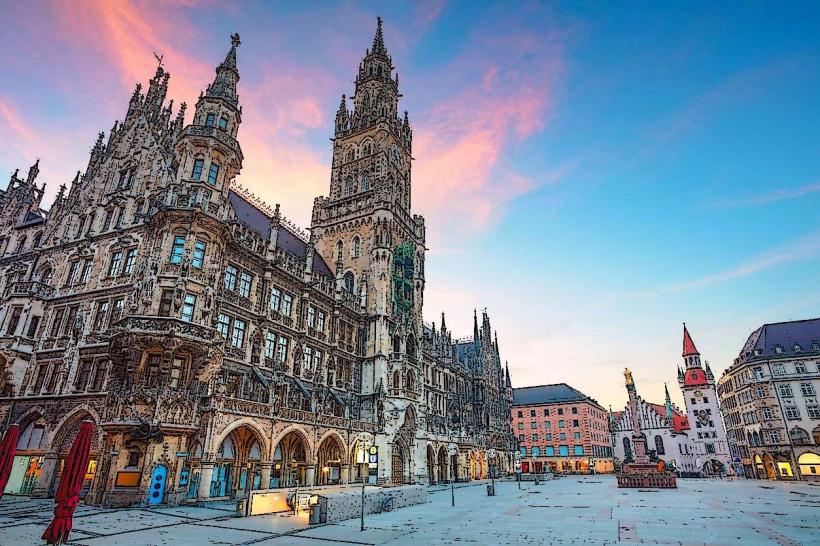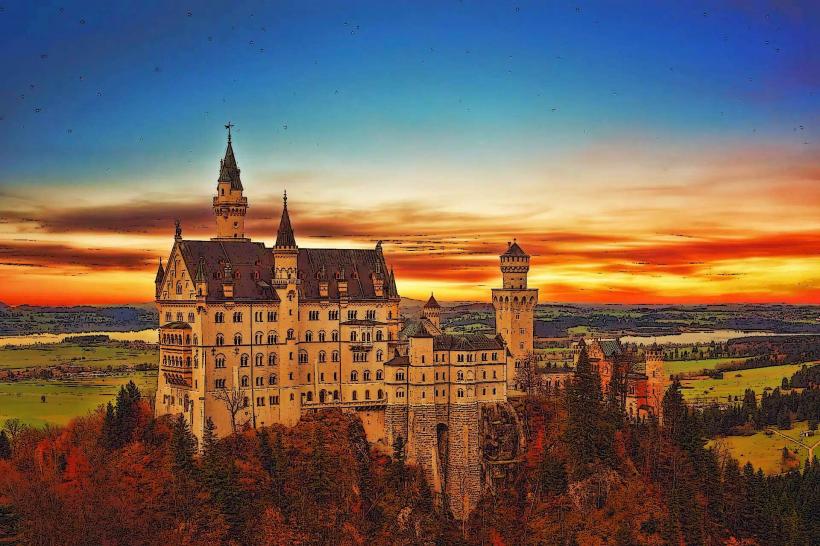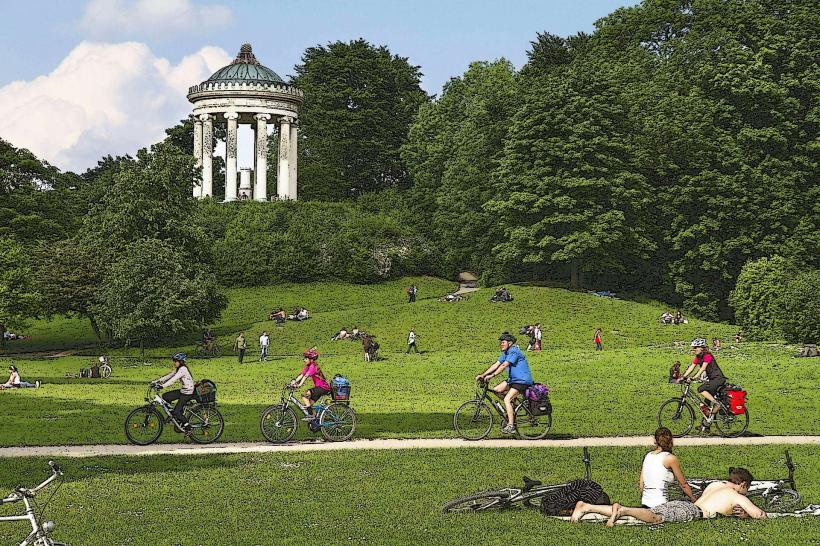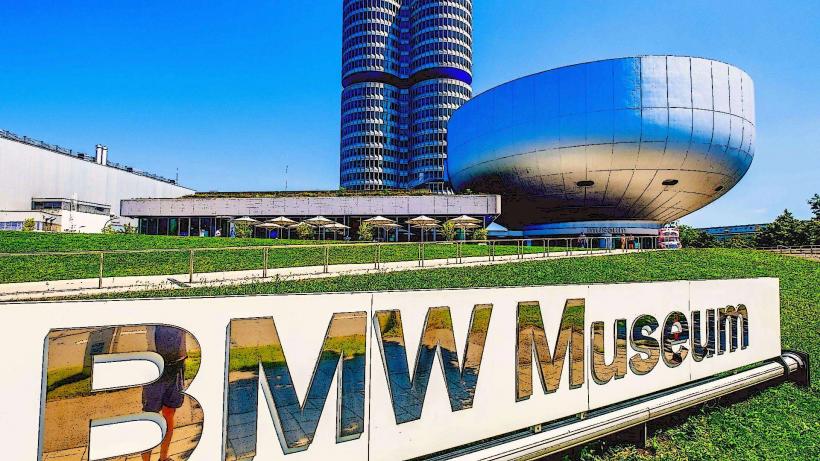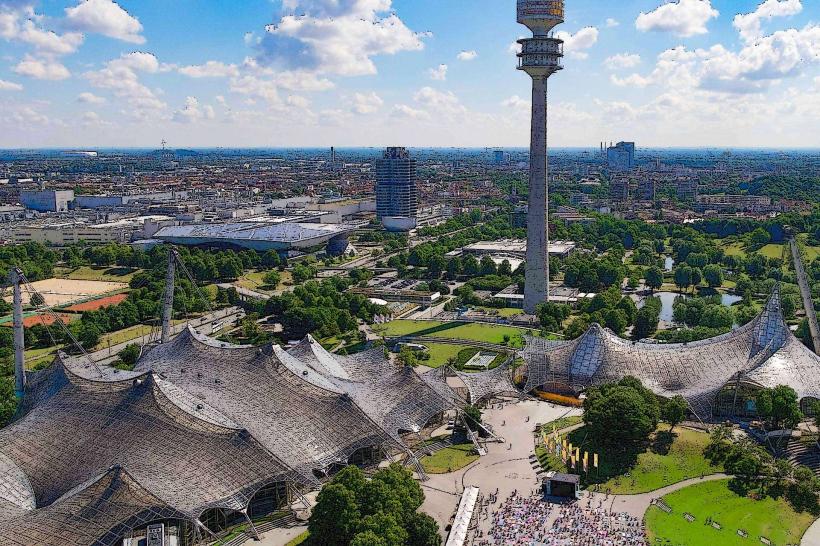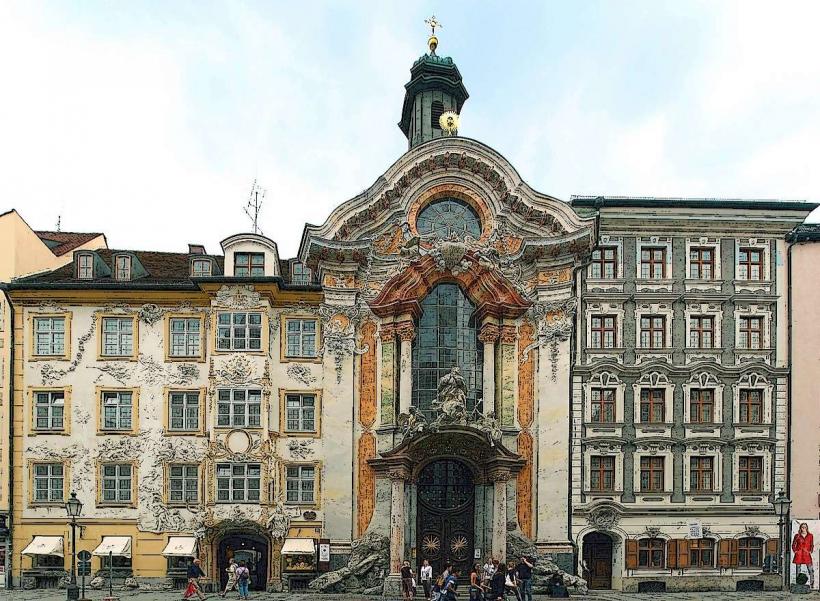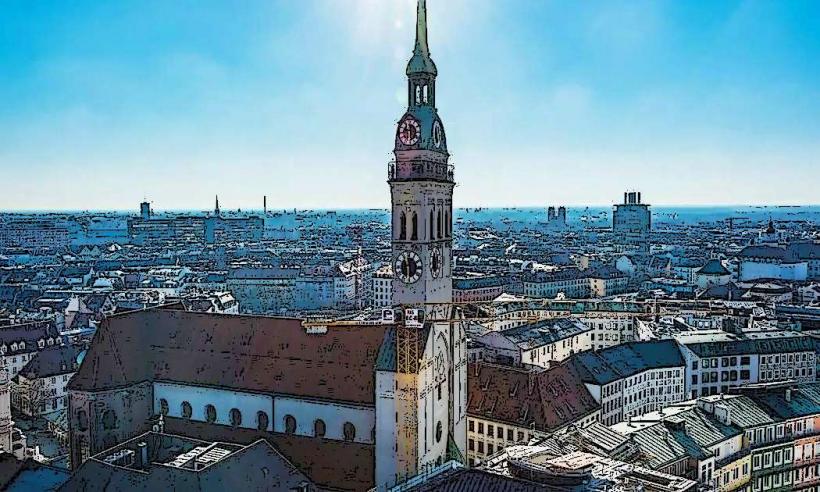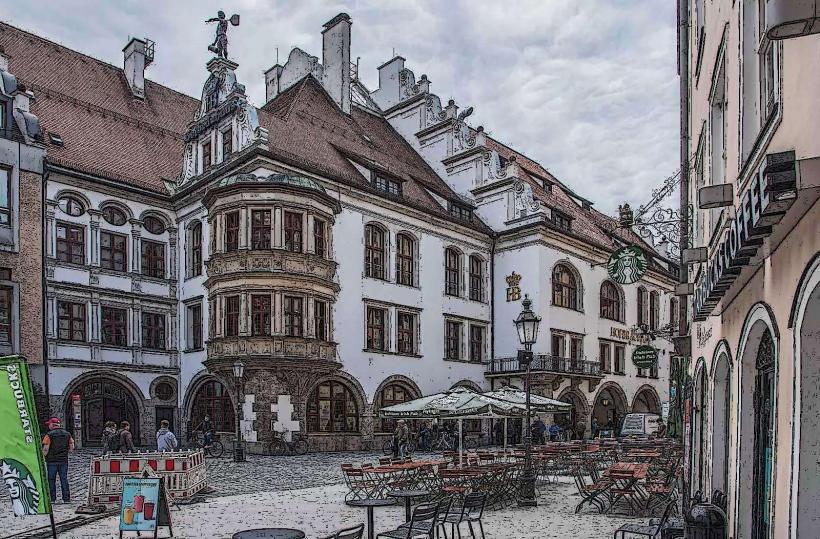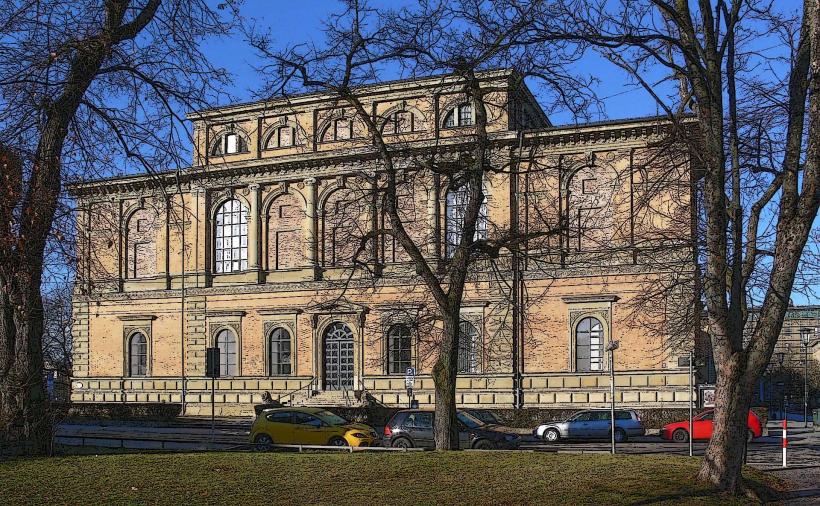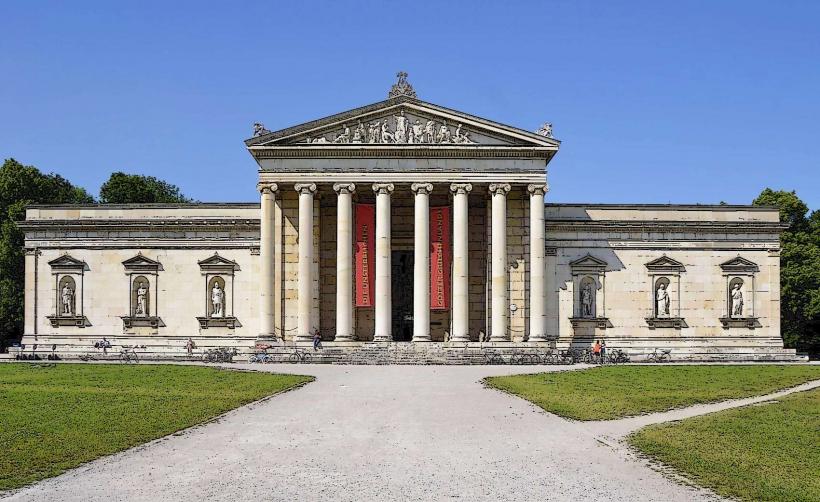Information
Landmark: ViktualienmarktCity: Munich
Country: Germany
Continent: Europe
Viktualienmarkt, Munich, Germany, Europe
Viktualienmarkt is a historic and vibrant outdoor market located in the heart of Munich, Germany. Dating back to 1807, it is one of the oldest and most famous markets in the city, renowned for its wide selection of fresh produce, specialty foods, local delicacies, and unique Bavarian products. The market is a must-visit for both locals and tourists who wish to experience Munich's rich culinary traditions and vibrant atmosphere.
1. History and Origins
- Founding: The Viktualienmarkt originated in 1807 when the market was first established as a simple food market to cater to the growing population of Munich. Originally, vendors set up stalls on the square in front of the St. Peter’s Church (Peterskirche) to sell fresh produce, fish, meat, and other goods. The word "Viktualien" itself comes from the Latin term for "provisions" or "foodstuffs."
- Expansion: Over the years, the market grew rapidly in size and popularity, becoming a focal point for local trade and commerce. The market moved to its present location in 1852, where it expanded further and incorporated new features like specialized food stalls and various kinds of artisan products.
- Cultural Significance: Throughout Munich’s history, the Viktualienmarkt has been a social gathering place, a symbol of Bavarian culture, and an essential part of Munich's culinary landscape. It became an important venue for locals to purchase high-quality food and produce, while also fostering a community atmosphere in the city.
2. Market Layout and Atmosphere
- Central Location: Viktualienmarkt is located in the Altstadt-Lehel district, just a short walk from Marienplatz, Munich’s central square. Its prime location makes it easily accessible and a popular stop for tourists exploring the city center.
- Variety of Stalls and Products: The market features around 140 stalls offering a wide variety of products, including:
- Fresh Produce: Stalls selling seasonal fruits, vegetables, and herbs.
- Meat and Charcuterie: Local butchers offering sausages, cured meats, and game.
- Cheese and Dairy Products: A range of cheeses, milk, butter, and other dairy products from local and regional producers.
- Fish and Seafood: Vendors selling fresh fish and seafood from nearby lakes and rivers.
- Breads and Pastries: Bakeries offering freshly baked bread, pastries, cakes, and pretzels.
- Flowers and Plants: Florists selling a variety of plants, flowers, and floral arrangements.
- Specialty Foods: Many stalls focus on local Bavarian specialties, such as pretzels (Brezn), Obatzda (a creamy cheese spread), and regional honey, jams, and spices.
- Unique Offerings: In addition to food, Viktualienmarkt is known for its unique offerings such as artisanal products, handcrafted goods, and gourmet ingredients. It's an excellent place to find specialty items like truffles, exotic spices, and rare herbs.
3. The Beer Garden (Viktualienmarkt Beer Garden)
- Iconic Beer Garden: One of the standout features of Viktualienmarkt is its traditional Bavarian beer garden, which occupies a central spot in the market. Opened in 1852, it is one of the oldest beer gardens in Munich and offers a relaxing space for visitors to enjoy a cold beer in the company of locals and tourists.
- Bavarian Beer: The beer garden serves a selection of local Bavarian beers, particularly from Munich’s renowned breweries like Hofbräuhaus and Augustiner. Visitors can enjoy a beer while sitting under chestnut trees, adding to the authentic Bavarian experience.
- Traditional Bavarian Food: Alongside the beer, the market's beer garden serves classic Bavarian dishes such as pretzels, sausages, schnitzels, and other traditional snacks. It's a great place to sample local fare while soaking in the lively atmosphere.
4. Special Events and Festivals
- Weekly Farmers Market: The Viktualienmarkt is open daily (except Sundays), but it is particularly lively on Wednesdays, when a weekly farmer’s market takes place, showcasing locally grown organic produce and other fresh foods.
- Seasonal Celebrations: Throughout the year, the market hosts a variety of seasonal festivals and events, including special Christmas markets in December, showcasing festive foods, mulled wine, and handmade crafts. In spring and summer, the market hosts events such as flower festivals and celebrations of local produce.
- Beer and Food Events: Occasionally, the market also organizes beer tastings and special food festivals where visitors can learn more about Bavarian culinary traditions and sample new and unique foods from the region.
5. Cultural and Culinary Hub
- Bavarian Traditions: Viktualienmarkt is a reflection of Munich’s culinary traditions and Bavarian culture. The market is known for its high-quality local produce, and it’s an important destination for those wanting to taste authentic Bavarian specialties, such as Bierwurst (beer sausage) or Käsespätzle (cheese noodles).
- Culinary Tours: Many guided food tours in Munich include Viktualienmarkt as one of the stops, providing visitors with a deeper understanding of the food culture in Munich. Tourists can sample fresh produce, local delicacies, and artisanal products, all while learning about the region's history and food customs.
- Famous Traditions: One of the market’s notable traditions is the Maypole (Maibaum), which stands at the center of the market. This is a symbol of Bavarian culture and is decorated each spring to celebrate the arrival of the warmer season.
6. Vibrant Atmosphere
- Bustling Environment: Viktualienmarkt is known for its lively, bustling atmosphere. Stalls are often busy with both locals doing their daily shopping and tourists exploring the wide range of products. The market’s vibrant energy, combined with its historic charm, makes it a captivating place to visit.
- Street Performers and Musicians: In addition to the food stalls, the market is often home to street performers and musicians, adding to the lively ambiance. Visitors can enjoy live music or watch local artists as they stroll through the market.
7. Access and Visitor Information
- Opening Hours: The Viktualienmarkt is open every day except Sundays, typically from 8:00 AM to 8:00 PM, with some individual vendors having slightly different hours. The beer garden operates later in the evening and is open year-round.
- Public Transport Access: The market is centrally located, and it is easily accessible by public transport. The nearest U-Bahn (subway) station is Marienplatz, which is just a few minutes' walk away from the market. It is also accessible by bus and tram.
- Location: The market is located in the Altstadt-Lehel district, just a short walk from other iconic Munich landmarks such as Marienplatz, St. Peter's Church, and the Glockenspiel.
8. Conclusion
The Viktualienmarkt is more than just a place to shop for food; it is a cultural experience that allows visitors to immerse themselves in Munich's culinary heritage and enjoy the lively atmosphere of one of the city's most famous markets. With its wide variety of fresh produce, local delicacies, specialty foods, and traditional Bavarian beer garden, Viktualienmarkt is a must-visit for anyone wanting to explore the flavors, sounds, and sights of Munich. Whether you're a food lover, a culture enthusiast, or just someone looking to enjoy a traditional Bavarian meal, Viktualienmarkt offers something for everyone.

